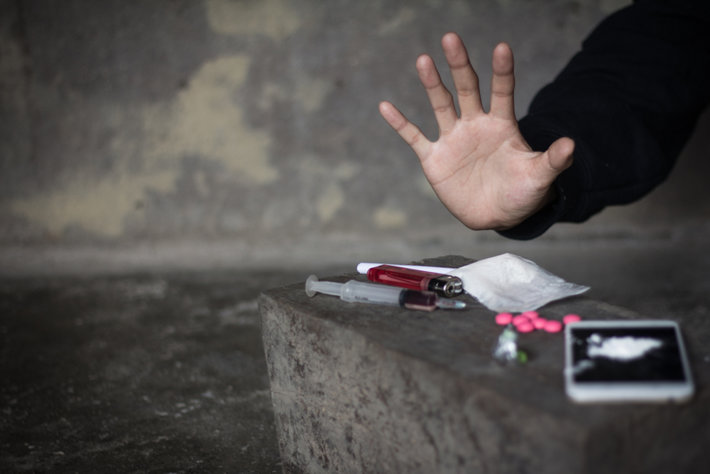Why Can’t We Legalize Drugs?

The legalization debate is probably one of the most heated and contentious arguments on the subject of drugs. I have a hard time thinking of another topic in the area that is discussed as often or to such a great length as the legalization debate.
Those who support legalization make passionate, but flawed arguments. They cite foreign nations which have followed this model. They talk about reductions in crime rates, a factor often used as a metric to a society’s advancement. But what they don’t tell you is the dark side to drug legalization: the increase in the use of drugs among those who wouldn’t ordinarily use them; the health problems; the traffic accidents due to drugged driving; the spread of infectious diseases; and so on.
We simply can’t legalize drugs and continue to grow as a nation. The legalization of drugs would create an entire class of people who would represent a hazard for everyone else. A society driving around oblivious to others is an accident waiting to happen.
A Sober Life Is Always the Best Life

While it may seem to some that the superficial results of legalization would be an improvement to what we face currently, we can all agree that a sober life is a good life. We can all agree that living a drug-free, addiction-free life is preferable to one that is saddled with drug dependence. At least we should agree.
If we can all agree that a sober, drug-free existence is preferable to one that is crippled by addiction, then we all must work together to create a sober society. I will be the first to agree that the heavy handed, criminalizing, “War on Drugs” strategies of the last forty years are entirely unworkable. But just because the War on Drugs has not worked does not mean that we have to take our nation 180 degrees in the other direction and start supporting legalization.
We can approach the drug addiction issue without heavy-handed tactics and without legalizing drugs. We need to support an ethical, moral, just, crime-free, drug-free society. It makes sense to create a healthy and pleasant future for our kids. What kind of nation will our children inherit if our kids can buy heroin at the grocery store alongside their bacon and eggs? It is our responsibility not only as adults but as members of the human race to literally shape our society to make it as moral, pleasant, healthy and safe as it can be.
How are we going to do that if drug use is rampant, legal, and accepted? We already know that drug use causes serious health problems in addition to being habit-forming. Even if crime rates go down because of legalization, do we want to live in a nation where a significant percentage of our population uses mind-altering, toxic, life-threatening drugs?
It might surprise you to know that, from recent research on the matter, there are at least 19.7 million Americans who are addicted to drugs and alcohol. And that’s with most drugs being illegal! Imagine how many people would be hooked on substances if all drugs were legal.
The Difference between Legalization and Decriminalization
We should make a point here that the argument for or against legalization is not the same thing as the argument for or against decriminalization, which is an entirely different subject.
Decriminalization is sort of an in-between of the two extremes of legalization and prohibition. Decriminalization walks a very fine line. A policy for decriminalization still keeps drugs illegal. Anyone caught selling drugs, transporting specific quantities of drugs, storing large amounts of drugs, and so on is still punishable by law. The only difference with decriminalization is that it removes the criminal implications of using drugs. Under decriminalization law, if an addict is caught using drugs, or if an individual is found with a small amount of drugs on his person (no intent to distribute), the individual is directed to addiction treatment services, not criminal sentences or jail time.
In an ideal world this would represent a sane solution, but ours is not such a world and individuals suffering from addiction often refuse treatment. In some models of decriminalization there are never criminal penalties for drug related charges. If an addict walks out of treatment they suffer no consequences and are very like to re-offend.
Perhaps a better option is what is known as diversion. In this model criminal charges are withheld pending successful completion of a drug and alcohol rehabilitation program and a length of time with no further offenses.
A Closing Message on Drug Legalization
In closing, it seems fitting to leave our readers with a quote from Dr. Nora Volkow, one of the nation’s leading experts on addiction. Dr. Volkow is the executive director of the National Institute on Drug Abuse. She spoke on the dangers of legalizing drugs in a videotaped interview with USA Today. I have transcribed one segment of that interview to show, from a scientific and purely logical stance, why we cannot legalize drugs.
“The issue with legalizing drugs is the moment that you legalize a drug (and we have two of them, alcohol and tobacco) that increases the number of people that are going to get exposed to them on a regular basis. And this explains why the highest mortality from drugs occurs not from the most dangerous drugs like heroin or methamphetamine but from tobacco and alcohol, because they are legal….”
Dr. Volkow stated:
“The issue with legalizing drugs is the moment that you legalize a drug (and we have two of them, alcohol and tobacco) that increases the number of people that are going to get exposed to them on a regular basis. And this explains why the highest mortality from drugs occurs not from the most dangerous drugs like heroin or methamphetamine but from tobacco and alcohol, because they are legal. And so many more people get exposed to it. The moment that we start to legalize a third drug, we will start to see by default more people suffering adverse effects from that drug. That will result in negative outcomes. As a country, when we’re making decisions of what to legalize or not to legalize, we have to be very aware of the data that we have, and go with our eyes full open that the health consequences of legalizing a third drug will result in much higher mortality from its use, by pure numbers.”Her message might be one of the best logical depictions of why we can’t legalize drugs. We could consider shifting our practices regarding addicts towards one of diversion and immediate intake into residential treatment centers. But we should never legalize drugs.
Sources:
- https://www.samhsa.gov/data/sites/default/files/cbhsq-reports.pdf
- https://www.usatoday.com/story/news/health/weed-marijuana-cannabis-opioid-addiction-withdrawal-nida-nora-volkow/
Reviewed by Claire Pinelli ICAADC, CCS, LADC, RAS, MCAP


